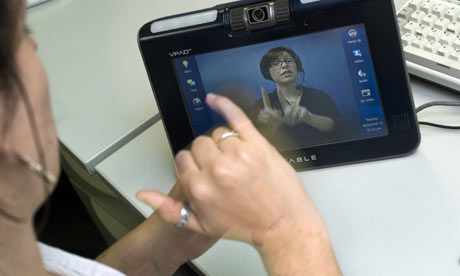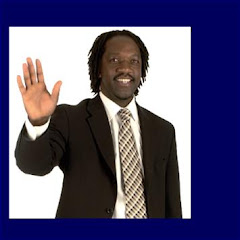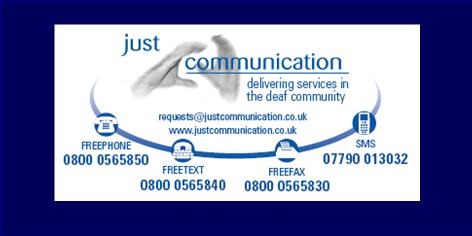Ten million people have a hearing problem but legal aid cuts will make woeful provision of legal services worse, finds Neil Rose (Guardian 11/08/11).

The legal system is not geared to handle the need of deaf people. Photograph: Christian Sinibaldi
You don't have to look very far to find stories about deaf people who have been let down by lawyers and the legal system. There's Funmi, a deaf Nigerian who has lived in the UK since 1987 but whose solicitor did not make her citizenship application correctly; David, a self-employed man whose solicitor did not fight his corner over benefits he was entitled to for being wholly reliant on his hearing mother to communicate with clients; and John, whose union solicitor did a bad job of his disability discrimination case against a well-known financial institution. All of these people eventually turned to RAD Legal Services, part of the Royal Association for Deaf People and the country's only dedicated legal resource for the deaf. Why are there not more, especially because – with nearly 10 million people suffering some sort of hearing problem – it is potentially a huge market to serve? Its head, solicitor Rob Wilks, is not certain. "It could be because deafness is a 'hidden' disability," he says. There are small signs of this changing. Blackburn law firm Joseph Frasier will next week launch a campaign to provide legal services for deaf people under the headline: "Representing your right to be heard." Claiming to be the first private law firm dedicated to deaf and hard of hearing people, founder Saimina Virmani says it is the culmination of 18 months of preparation; the campaign was inspired by deaf staff working in the building where the firm is situated (which belongs to the East Lancashire Deaf Society) and by her experience of acting for a deaf client. She has also come across "terrible" stories of solicitors denying deaf people access to interpreters and simply not understanding the different ways they need to communicate with deaf people, such as in the way they write letters. The firm's fee-earners, none of whom are deaf, are being taught British Sign Language (BSL) and it is adapting its communication channels. "The last few months have been a journey for us and we have loved learning about deaf culture," Virmani says. "The deaf community is very tightly knit and although we see people who are deaf as being on the outside of our world, the tables have now completely turned and we are on the outside. As legal professionals we are trained to use the power of our advocacy and voice but in working with deaf/hard of hearing clients, this has essentially been taken away from us." The legal system, it appears, is simply not geared to the needs of deaf people – Rob Wilks says deaf people who use BSL as a first language often have poor literacy levels (the average reading age for deaf school leavers is 8-9 years). "This means that they cannot understand information leaflets and correspondence, or access telephone helplines using a textphone," he says. A report in 2009 by the Equality and Human Rights Commission found that the advice system of CABs, law societies, union sources and private firms of solicitors "are often still inaccessible to profoundly deaf customers" though the Disability Discrimination Act has been on the statute books since 1995. Now the Equality Act 2010, it requires service providers to make adjustments to ensure that a disabled person can use a service as close as it is reasonably possible to the standard usually offered to non-disabled people. This is not happening across the legal system, both in most law firms and in the courts. Part of the problem, Wilks says, is the "chronic shortage" of interpreters, but it is just plain neglect as well. One of Virmani's projects has been to build a network of law firms (now numbering nearly 50) around the country that have committed to become deaf-aware and will be able to help deaf people in their area if face-to-face help is required. The association began an advice service in 2000, transforming into RAD Legal Services in July 2007, when Wilks, who has been deaf since birth, qualified as a solicitor and the £500,000 Big Lottery Fund deaf minority advice project commenced. Over the past four years, RAD has handled nearly 1,500 cases, with employment, welfare benefits, discrimination and housing the most in-demand areas of law. It has a contract (until March 2012) from the Equality and Human Rights Commission to provide discrimination advice to deaf and hard of hearing people throughout England, Wales and Scotland. Plans for the first deaf law centre are also well underway. And there is further hope that the legal needs of deaf people will be understood. The legal services consumer panel has confirmed that the first of a series of studies into how specific groups of consumers (particularly disadvantaged ones) experience legal services will be in partnership with Action on Hearing Loss (formerly RNID). Emma Harrison, a member of the panel and head of public engagement at Action on Hearing Loss, says the study has come out of work the charity has been doing to improve access to the courts and hopes to highlight the pockets of best practice that exist in the legal profession. But the prospect of the legal aid cuts could worsen the situation for the deaf community, Wilks says. Aside from simply not being able to afford legal advice, law firms or other legal advice providers that have legal aid franchises will no longer be able to rely on legal aid to claim the costs of interpreters as a disbursement. "This means the number of providers willing to provide legal advice to deaf people is likely to decline." Given the low base from which this is starting, it is a woeful prospect.







No comments:
Post a Comment